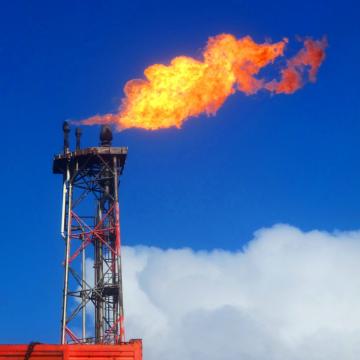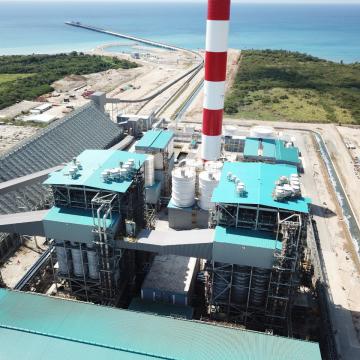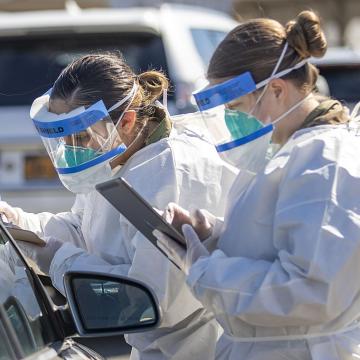-
NewsScientists, led by alumna Jacqueline Gerson PhD'21 and faculty member Emily Bernhardt, recorded the highest levels of atmospheric mercury pollution in the world in a pristine patch of the Peruvian Amazon
-
NewsThe anti-fogging sprays and cloths many people use to prevent condensation on their eyeglasses when wearing a mask or face shield may contain high levels of per- and polyfluorinated alkyl substances (PFAS), a new Duke University-led study finds.
-
NewsBy distinguishing between lead from modern sources and lead from pre-1970s vehicle exhaust fumes and leaded paint, the new test may be especially useful for assessing the hidden risks of legacy contamination.
-
NewsNew funding will help speed the development of an early-warning system that can predict the probability of malaria outbreaks occurring up to 12 weeks in advance, giving local officials time to put controls in place to prevent or curb the disease’s transmission.
-
NewsDuke University has received a $7.5 million grant from the U.S. Department of Energy to assess the risks offshore wind energy development along the East Coast may pose to birds, bats and marine mammals.
-
NewsLori Bennear and Tim Johnson discussed two bills under consideration in Congress and their potential impact on the reduction of carbon emissions and more.
-
NewsMost people are likely to experience an extreme pandemic like COVID-19 in their lifetime, a new study shows.
-
NewsScientists at Duke University have developed a suite of four new tests that can be used to detect coal ash contamination in soil with unprecedented sensitivity.
-
NewsDecades after federal bans ended widespread use of lead-based paint and gasoline, some urban soils still contain lead levels that exceed safety guidelines for children.
-
NewsReducing emissions of methane, a short-lived but super-potent greenhouse gas, is the most cost-effective way to slow the rate of Earth’s warming in coming decades, a new United Nations report finds.
-
NewsDuke University researchers have found high levels of toxic heavy metals in coal ash from the Dominican Republic’s largest coal-fired power plant.
-
NewsMassive power outages in Texas brought on by a historic freeze could be avoided in the future if the state no longer isolates its power grid from other states, among other steps, according to Duke University experts.
-
NewsThe proliferation of pits and ponds created in recent years by miners digging for small deposits of alluvial gold in Peru’s Amazon has dramatically altered the landscape and increased the risk of mercury exposure for indigenous communities and wildlife, a new study shows.
-
NewsThe stringent lockdown imposed by the Chinese government to slow the spread of COVID-19 early this year significantly eased the strain on hospitals there. Admissions due to non-COVID respiratory illnesses decreased by nearly 5,000, a new study by an international team of scientists shows.
-
NewsA new Duke University-led analysis shows that during the early months of the COVID pandemic, the average number of new infections caused by an infected individual (i.e. the basic reproduction number, R0) was 4.5, or more than twice as many as the initial 2.2 rate estimated by the World Health Organization at the time.














